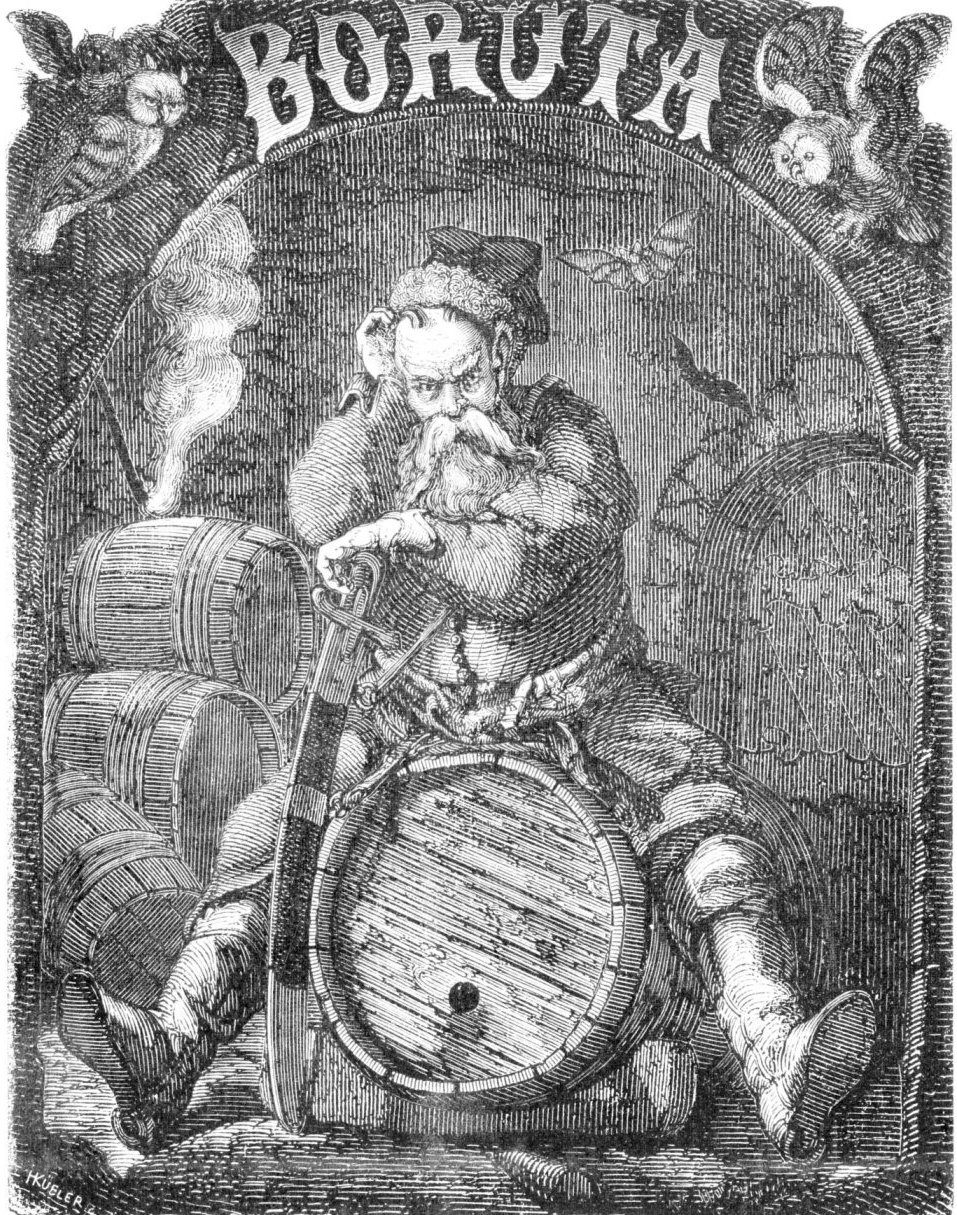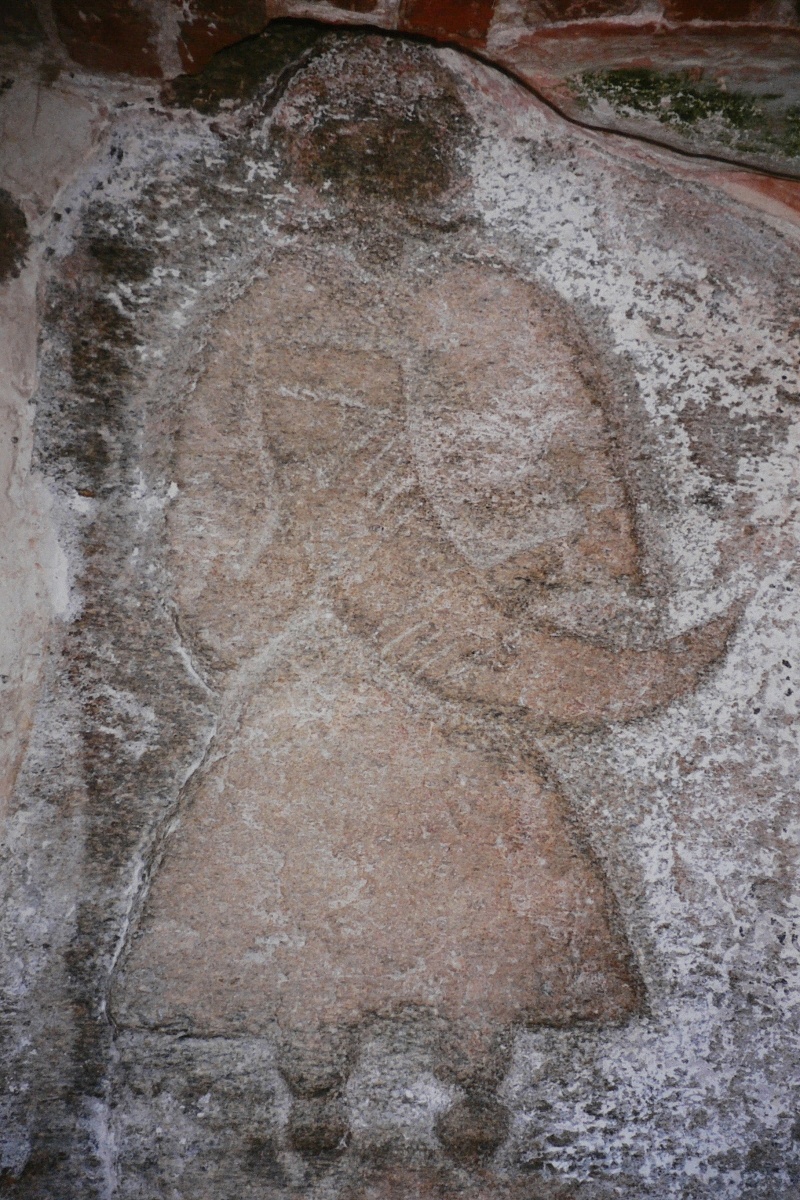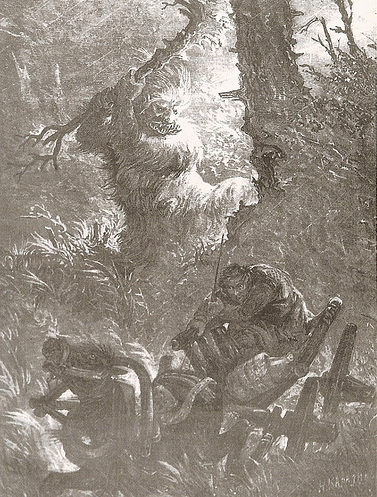|
Devil Boruta
Devil Boruta ( pl, DiabeŇā Boruta) is a fictional character from Polish mythology, folklore and literature, associated with the Polish town of ŇĀńôczyca. The character is the transformation of the pagan Slavic demon '' leshy'' in post-Christianization times. Boruta is also referred to as ''bŇāotnik'',PeŇāka, Leonard (1987). ''Polska demonologia ludowa''. Warszawa: Iskry. pp.187. a swamp spirit known in the mythology of the Kashubians and especially the Eastern Slavs, where he is called a ''bolotnik''. He was usually considered to be a nobleman Nobility is a social class found in many societies that have an aristocracy. It is normally ranked immediately below royalty. Nobility has often been an estate of the realm with many exclusive functions and characteristics. The characteristi ..., and accordingly, he was usually busy with corrupting nobles, leaving other social classes to other devils - like Rokita the devil from the same region, who more often tempted peasants. T ... [...More Info...] [...Related Items...] OR: [Wikipedia] [Google] [Baidu] |
Boruta
Boruta may refer to: *Boruta (mythology), a folkloric character *Boruta, Opole Voivodeship, a village in Poland *Boruta (surname) *Devil Boruta, a folkloric character *Boruta, 8th-century Carantanian chieftain; see Boruth See also *Borut (other) Borut may refer to: ;Places * Borut, a settlement in Neum; see List of populated places in Bosnia and Herzegovina ;People *Borut Bilańć (born 1965), Slovenian long jumper *Borut BoŇĺińć (born 1980), Slovenian professional road racing cyclist *Bor ... * Boruto (other) {{disambig ... [...More Info...] [...Related Items...] OR: [Wikipedia] [Google] [Baidu] |
ŇĀńôczyca
ŇĀńôczyca (; in full the Royal Town of ŇĀńôczyca, pl, Kr√≥lewskie Miasto ŇĀńôczyca; german: Lentschitza; he, ◊ú◊ē◊†◊ė◊©◊ô◊•) is a town of 13,786 inhabitants () in central Poland. Situated in the ŇĀ√≥dŇļ Voivodeship, it is the county seat of the ŇĀńôczyca County. Origin of the name The town was probably named after a West Slavic ( Lechitic) tribe called Leczanie, which inhabited central Poland in the early Middle Ages. Some scholars however claim that the town was named after an Old Polish word Ňāńôg, which means a swampy plain. In medieval Latin documents, ŇĀńôczyca is called Lonsin, Lucic, Lunciz, Lantsiza, Loncizia, Lonsitia and Lunchicia. In the early 12th century, Gallus Anonymus called ŇĀńôczyca "Lucic", and in 1154, Arab geographer Muhammad al-Idrisi named it Nugrada, placing it among other main towns of the Kingdom of Poland, such as Krak√≥w, Sieradz, Gniezno, WrocŇāaw and Santok. Location ŇĀńôczyca lies in the middle of the county, and has the area of . In the past ... [...More Info...] [...Related Items...] OR: [Wikipedia] [Google] [Baidu] |
Slavic Mythology
Slavic mythology or Slavic religion is the religious beliefs, myths, and ritual practices of the Slavs before Christianisation, which occurred at various stages between the 8th and the 13th century. The South Slavs, who likely settled in the Balkan Peninsula during the 6th‚Äď7th centuries AD, bordering with the Byzantine Empire to the south, came under the sphere of influence of Eastern Christianity, beginning with the creation of writing systems for Slavic languages (first Glagolitic, and then Cyrillic script) in 855 by the brothers Saints Cyril and Methodius and the adoption of Christianity in Bulgaria in 863. The East Slavs followed with the official adoption in 988 by Vladimir the Great of Kievan Rus'. The West Slavs' process of Christianization was more gradual and complicated. The Moravians accepted Christianity as early as 831, the Bohemian dukes followed in 845, Slovaks accepted Christianity somewhere between the years 828 and 863, but the Poles accepted it much later ... [...More Info...] [...Related Items...] OR: [Wikipedia] [Google] [Baidu] |
Leshy
The Leshy (also Leshi; rus, –Ľ–Ķ—ą–ł–Ļ, p=ňąl ≤e ā…®j; literally, " efrom the forest", pl, borowy, leŇõnik, leŇõniczy, lasowik, leszy) is a tutelary deity of the forests in pagan Slavic mythology. As the spirit rules over the forest and hunting, he may be related to the Slavic god Porewit. There is also a deity, named ''Svyatibor'' (''Svyatobor'', ''Svyatibog''), who is mentioned in the beliefs of the Eastern and Western Slavs as the god of forests and the lord of the leshies. His functions were identical to those of the god Veles. The Leshy is masculine and humanoid in shape, is able to assume any likeness and can change in size and height. In some accounts, Leshy is described as having a wife (''Leshachikha'', ''Leszachka'', ''Lesovikha'' and also, sometimes, the '' Kikimora'' of the swamp) and children (''leshonki'', ''leszonky''). He is known by some to have a propensity to lead travelers astray and abduct children (which he shares with Chort, the "Black One"), which wou ... [...More Info...] [...Related Items...] OR: [Wikipedia] [Google] [Baidu] |
Baptism Of Poland
The Christianization of Poland ( pl, chrystianizacja Polski) refers to the introduction and subsequent spread of Christianity in Poland. The impetus to the process was the Baptism of Poland ( pl, chrzest Polski), the personal baptism of Mieszko I, the first ruler of the future Polish state, and much of his court. The ceremony took place on the Holy Saturday of 14 April 966, although the exact location is still disputed by historians, with the cities of PoznaŇĄ and Gniezno being the most likely sites. Mieszko's wife, Dobrawa of Bohemia, is often credited as a major influence on Mieszko's decision to accept Christianity. While the spread of Christianity in Poland took centuries to finish, the process was ultimately successful, as within several decades Poland joined the rank of established European states recognised by the papacy and the Holy Roman Empire. According to historians, the baptism of Poland marks the beginning of Polish statehood. Nevertheless, the Christianization wa ... [...More Info...] [...Related Items...] OR: [Wikipedia] [Google] [Baidu] |
Bolotnik
In Slavic mythology, bolotnik (russian: –Ī–ĺ–Ľ–ĺŐĀ—ā–Ĺ–ł–ļ, ; from ''boloto'', "swamp"), balotnik (), bolotyanik () or bŇāotnik (Polish; ąbw…Ētnik "mud" or "puddle") is a male swamp spirit. There are many descriptions of bolotnik. Usually he was portrayed as a man or an old man who has big, frog-like eyes, a green beard and long hair. His body is covered with dirt, algae and fish scales. The legends from the Vitebsk Governorate of Russia said that bolotnik is a dirty, fat, eyeless creature that motionlessly sits at the bottom of the swamp. In some accounts bolotnik is also said to have long arms and a tail. Just like the majority of Slavic water spirits, he would lure and drag people into the water if they get close to the edge. It is believed that bolotnik has neither wife nor children; in the other legends he is married to bolotnitsa, a female swamp spirit. Bolotniki (plural) are rarely found in folklore, and the swamp-dwelling spirit was often thought of as a kind of vodyan ... [...More Info...] [...Related Items...] OR: [Wikipedia] [Google] [Baidu] |
Szlachta
The ''szlachta'' (Polish: endonym, Lithuanian: Ň°lńókta) were the noble estate of the realm in the Kingdom of Poland, the Grand Duchy of Lithuania, and the Polish‚ÄďLithuanian Commonwealth who, as a class, had the dominating position in the state, exercising extensive political rights and power. Szlachta as a class differed significantly from the feudal nobility of Western Europe. The estate was officially abolished in 1921 by the March Constitution."Szlachta. Szlachta w Polsce" ''Encyklopedia PWN'' The origins of the ''szlachta'' are obscure and the subject of several theories. Traditionally, its members owned land (allods), [...More Info...] [...Related Items...] OR: [Wikipedia] [Google] [Baidu] |
Rokita (devil)
Rokita is a surname. Notable people with the surname include: *Anna Rokita (born 1986), Austrian speed skater *Antoni Rokita (1909‚Äď1963), Polish wrestler *Jan Rokita (born 1959), Polish politician * Nelli Rokita (born 1957), Polish politician *Todd Rokita (born 1970), American congressman See also * *Rakita (other) Rakita (South and East Slavic languages, Slavic for Salix viminalis, basket willow) may refer to: Places *Rakita, Greece, a location in the municipal unit Leontio, Achaea, Greece. It is part of the community of Ano Mazaraki *Olympiada, Kozani, O ... {{surname Polish-language surnames ... [...More Info...] [...Related Items...] OR: [Wikipedia] [Google] [Baidu] |
Nowina Coat Of Arms
Nowina () is a Polish coat of arms. It was used by several ''szlachta'' families in the times of the Polish‚ÄďLithuanian Commonwealth. The original clan consisted of only 24 families. History Nowina is one of the oldest Polish heraldic marks with claims that it existed prior to 960 CE. However, the earliest known depiction was on a seal of Nacislaw of Dobrosolow of the Nowina clan in 1293 CE. It was first mentioned in a court registry of 1392 and spread across the families of Greater Poland and the lands of Krak√≥w, Lublin, Sandomierz and Sieradz. After the Union of HorodŇāo of 1413 CE several boyar families adopted this coat of arms. The representative of the Nowina clan ''adopted'' the nobility of Lithuanian descent was MikoŇāaj of Sepno, while the newcomers were represented by MikoŇāaj Bejnar. Blazon Azure, a cauldron's handle Argent, with both ends upwards. Between them a cross or a sword proper, with the handle upwards. Out of the crest coronet an armoured leg bent in t ... [...More Info...] [...Related Items...] OR: [Wikipedia] [Google] [Baidu] |
Polish Legends
Polish may refer to: * Anything from or related to Poland, a country in Europe * Polish language * Poles, people from Poland or of Polish descent * Polish chicken *Polish brothers (Mark Polish and Michael Polish, born 1970), American twin screenwriters Polish may refer to: * Polishing, the process of creating a smooth and shiny surface by rubbing or chemical action ** French polishing, polishing wood to a high gloss finish * Nail polish * Shoe polish * Polish (screenwriting), improving a script in smaller ways than in a rewrite See also * * * Polonaise (other) A polonaise ()) is a stately dance of Polish origin or a piece of music for this dance. Polonaise may also refer to: * Polonaises (Chopin), compositions by Fr√©d√©ric Chopin ** Polonaise in A-flat major, Op. 53 (french: Polonaise h√©ro√Įque, lin ... {{Disambiguation, surname Language and nationality disambiguation pages ... [...More Info...] [...Related Items...] OR: [Wikipedia] [Google] [Baidu] |




